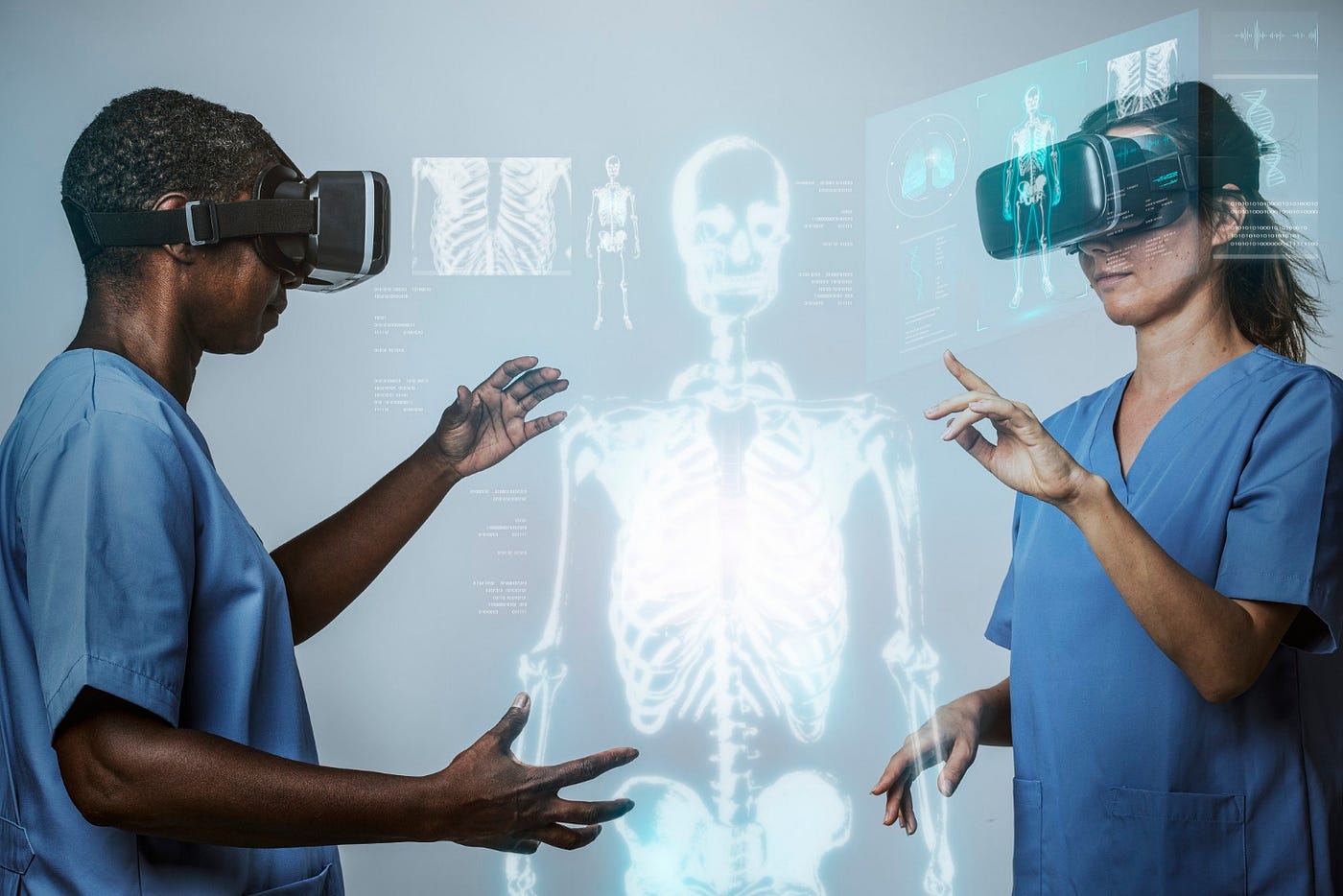
Deep Tech is Reshaping the Pharmaceutical Industry
The pharmaceutical industry is undergoing a profound metamorphosis powered by deep tech innovation.
As advancements in scientific and technological fields grow, a vast portfolio of cutting-edge technologies reshapes drug development, personalized medicine, and patient care. Major reports by Deloitte,PwC, KPMG, Boston Consulting Group (BCG) and World Economic Forum have all outlined that we are at the cusp of a new Pharma Era, and novel strategies are an imperative. This article highlights only a few critical global tech trends that offer significant opportunities for forward-thinking pharma companies and challenges and future trajectories of deep tech in the pharmaceutical sector.
Global Tech Trends Influencing Pharma
Generative AI: Generative AI algorithms facilitate the creation of novel molecular structures and drug candidates, expediting drug discovery and optimizing drug design.
Cognitive AI: Cognitive AI systems enhance decision-making and data analysis, leading to more precise clinical trial designs, patient stratification, and treatment optimization.
Digital Twins: Digital twin models simulate biological processes, aiding in virtual drug testing, personalized treatment planning, and real-time patient monitoring.
Blockchain: Blockchain technology enhances transparency and security in supply chains, clinical trial data management, and drug traceability, augmenting patient confidence.
Next-Generation Sequencing: NGS technologies enable rapid and cost-effective genomic profiling, facilitating precision medicine approaches and targeted therapies.
Wearables/Sensors/Bio-implants: Wearable devices and bio-implants generate real-time health data, allowing continuous patient monitoring and personalized treatment adjustments.
3D Printing: 3D printing revolutionizes drug delivery systems, enabling personalized medication and intricate drug formulations tailored to individual needs.
Opportunities Reshaping The Pharma Industry
Deep tech innovation presents numerous transformative opportunities for the pharmaceutical industry, promising to revolutionize drug development, treatment approaches, and patient care.
Accelerated Drug Development: AI-driven drug discovery and design expedite the identification of potential drug candidates, reducing time and costs. Generative AI algorithms can accelerate the identification of novel molecular structures and drug candidates, significantly reducing the time and costs involved in the drug discovery process.
Personalized Pharma and Medicine: Deep tech enables tailored treatments based on individual patient genomic, clinical and lifestyle data, improving treatment outcomes and patient satisfaction by tailoring treatments to individual patients based on their specific needs. By harnessing patient-generated data and employing cognitive AI systems, healthcare providers could also optimize clinical trial designs, improve patient stratification, and refine treatment regimens to enhance treatment outcomes and patient satisfaction.
Patient-Sourced Data. Another compelling opportunity lies in driving strategic intelligence from real-world evidence. We can continuously monitor patients by integrating wearable devices, bio-implants, and digital twins, collecting valuable real-world data on drug efficacy, safety, and post-market surveillance. This rich data source can provide invaluable insights into treatment effectiveness and inform future drug development strategies. Digital twins facilitate virtual testing and personalized treatment simulations, driving advancements in targeted therapies. The deployment of Federated Learning can facilitate the creation of global healthcare data exchanges that optimize R&D for global and public health, such as vaccines and targeted therapeutics to prevent future pandemics.
Smart Drugs and Delivery Systems. Additionally, the application of genomics, nanotech or 3D printing technology has the potential to revolutionize drug delivery systems, ultimately improving treatment adherence and therapeutic outcomes.
Challenges in Deep Tech Innovation for Pharma
Despite the promising opportunities, the integration of deep tech in the pharmaceutical industry also poses significant challenges.
Regulatory landscape. One of the foremost hurdles is navigating the complex and evolving regulatory landscape. Introducing innovative technologies demands close collaboration between industry stakeholders, regulatory bodies, and researchers to ensure that all applications meet stringent safety and efficacy standards.
Patient safety remains critical when implementing new technologies, particularly those involving AI-guided decision-making. Rigorous testing, validation, and ongoing monitoring are essential to guaranteeing patient well-being and minimizing potential risks associated with AI-driven clinical decisions.
Ethical considerations surrounding patient sovereignty and data privacy also arise with the integration of patient-generated health data. Pharma organizations must address informed consent, data ownership, and transparent data governance questions to protect patients' privacy and build digital trust in these technologies.
Future Directions in the Pharma Sector
The convergence of deep tech and other disruptive technologies will drive profound transformation in the pharmaceutical industry. The nascent and evolving Metaverse(s), or the industrial Omniverse™ as defined and powered ny NVIDIA offers unprecedented pathways to enhance the pharma ecosystem
In the near future, advancements in human-computer interfaces such as Neuralink's Patient Registry or the bio-digital twin model of the human brain project by the European Innovation Council could also create a seamless interaction between patients, healthcare systems and pharmaceutical companies, ultimately improving patient outcomes.
Quantum computing has also sparked increased investments as it has the potential to revolutionize pharmaceutical R&D by exponentially increasing computational power. Its ability to process complex algorithms and solve intricate problems can accelerate drug discovery, optimizing molecular simulations, and predicting drug interactions. This transformative technology may lead to the discovery of novel drugs and personalized treatments, ultimately advancing patient care and healthcare outcomes.
Conclusion
Deep tech innovation is reshaping the pharma industry, offering unprecedented possibilities to revolutionize drug development, treatment approaches, and patient care. Forward thinking leaders in the pharma and life sciences industries that embrace innovation and become versatile in integrating these novel technologies responsibly to extract valuable strategic intelligence, will gain a competitive advantage in the new era of Precision Pharmacology and accelerate the World Health Organization's agenda to change the paradigm for Global Health.
Trending
-
1 Mental Health Absences Cost NHS £2 Billion Yearly
Riddhi Doshi -
2 Gut Check: A Short Guide to Digestive Health
Daniel Hall -
3 London's EuroEyes Clinic Recognised as Leader in Cataract Correction
Mihir Gadhvi -
4 4 Innovations in Lab Sample Management Enhancing Research Precision
Emily Newton -
5 The Science Behind Addiction and How Rehabs Can Help
Daniel Hall





Comments